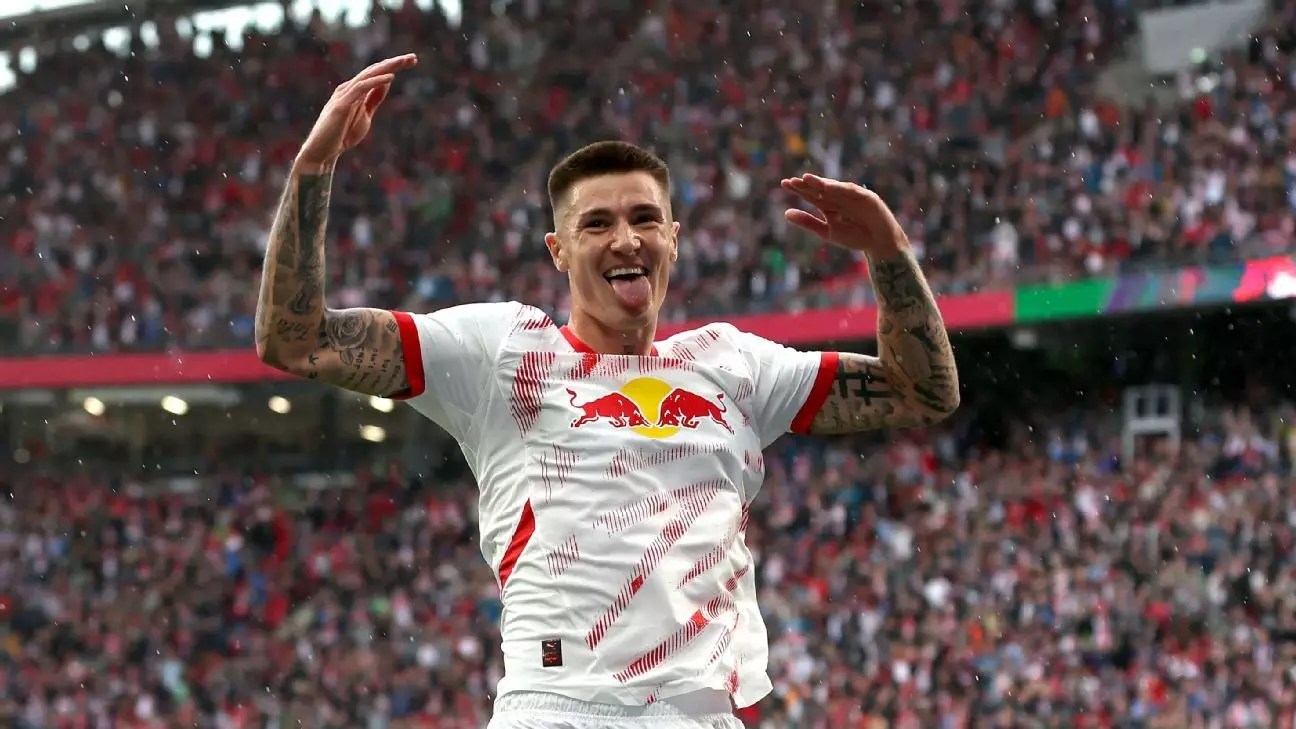Newcastle United’s recent transfer efforts reveal a club deeply committed to elevating its competitive stature, but also grappling with internal inconsistencies and external pressures. The club’s aggressive pursuit of talented forwards like Benjamin Sesko signifies a clear ambition to bolster their attacking options, reflecting a strategic vision of becoming a top-tier contender. This ambition is not merely about adding quality but also about signaling to the league and fans that Newcastle is serious about challenging traditional powerhouses. However, amid this drive, the club’s ongoing internal discord—highlighted by the unsettled situation with Alexander Isak—exposes vulnerabilities that could derail even the most well-intentioned plans.
Eddie Howe’s candid remarks about the “far from ideal” circumstances surrounding Isak reveal a club caught between aspiration and reality. The fact that the Swedish striker was absent from the pre-season tour, allegedly due to injury but surrounded by rumors of discontent, underscores a broader issue: internal harmony is often as crucial as external signings. Newcastle’s determination to hold onto Isak while simultaneously seeking a formidable backup or alternative indicates a club in a state of strategic flux, trying to balance stability with ambition. This delicate balancing act could define their trajectory for the upcoming season—either propelling them forward or causing distractions that hinder cohesive progress.
Financial Power and the Cost of Aspiration
The financial details of these transfer pursuits exemplify Newcastle’s willingness to deploy significant resources to achieve their goals. The reported bid of up to £69.7 million for Sesko and the earlier rejection of a £110 million bid for Isak from Liverpool suggest a club unafraid to spend heavily. The club’s financial muscle signals a decisive push towards immediate impact, aiming to integrate high-caliber players who can contribute right away on the pitch. Yet, this raised spending also invites scrutiny about long-term strategic planning. Are these investments sustainable? Will they translate into tangible on-field success? These questions linger as Newcastle vacillate between aggressive pursuit and prudent management.
Furthermore, the positioning in the transfer market reflects a nuanced understanding of player valuation and competitor activity. Manchester United’s interest in Sesko and Newcastle’s competing bid reveal a crowded landscape for top young talent. Such competition exacerbates the challenge of striking a balance between financial expenditure and squad harmony. Although money often speaks loudly in modern football, the real challenge lies in integrating new signings seamlessly into a team still evolving under Howe’s management, especially in a season where internal crisis management may sideline their broader ambitions.
The Inner Turmoil and Its Broader Implications
The delicate situation with Alexander Isak represents a complex internal crisis that could undermine Newcastle’s season before it truly begins. Howe’s acknowledgment of being “very much removed” from the transfer saga and his inability to control internal player matters highlights the fragility of club cohesion. Such internal discord, if unresolved, can seep into team morale, influence locker room dynamics, and ultimately affect performances on the pitch.
By revealing that they were unaware of Isak’s whereabouts until media reports surfaced, Newcastle’s management inadvertently exposed vulnerabilities in their player management strategy. This level of disorganization diminishes confidence, not only among players and staff but also among supporters eager for stability and success. Howe’s cautious approach, emphasizing “quality over quantity,” underscores the club’s recognition that reckless transfers are counterproductive. However, navigating this period requires not just strategic signings but also a stabilization of internal relationships—something that appears currently elusive.
The Road Ahead: Balancing Growth with Internal Stability
As Newcastle continues its high-stakes transfer campaign, the pressing question remains whether the club can align its formidable financial capacity with efficient internal management. Pursuing players like Sesko signals a desire to build a team capable of competing at the highest levels, but this must come alongside internal diplomatic harmony, especially with key players such as Isak. The capacity to resolve these internal conflicts swiftly will likely determine whether Newcastle can translate their financial ambitions into tangible on-field success.
The club’s strategic focus must shift from merely acquiring talent to fostering an environment where those talents can thrive collectively. The challenge lies in transforming financial power and individual signings into coherent team chemistry—a feat that requires patience, clarity, and strong internal leadership. The stakes are high, and while the allure of quick success drives the transfer pursuit, long-term stability hinges on overcoming the current internal turbulence. Achieving this synergy could very well define Newcastle’s future as a football powerhouse or, conversely, leave them stranded amid high-profile yet unfulfilled ambitions.


Leave a Reply